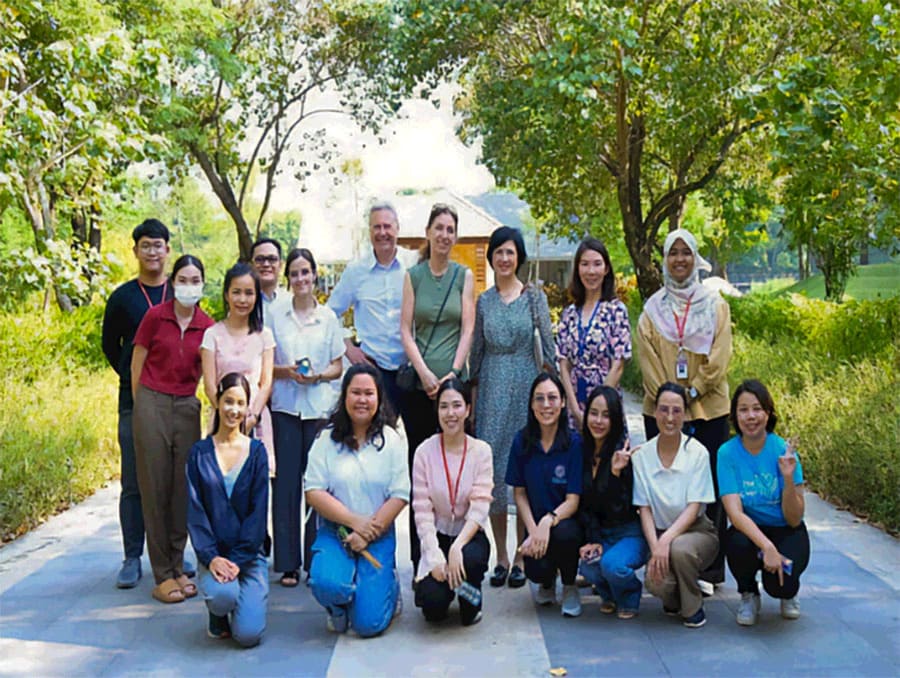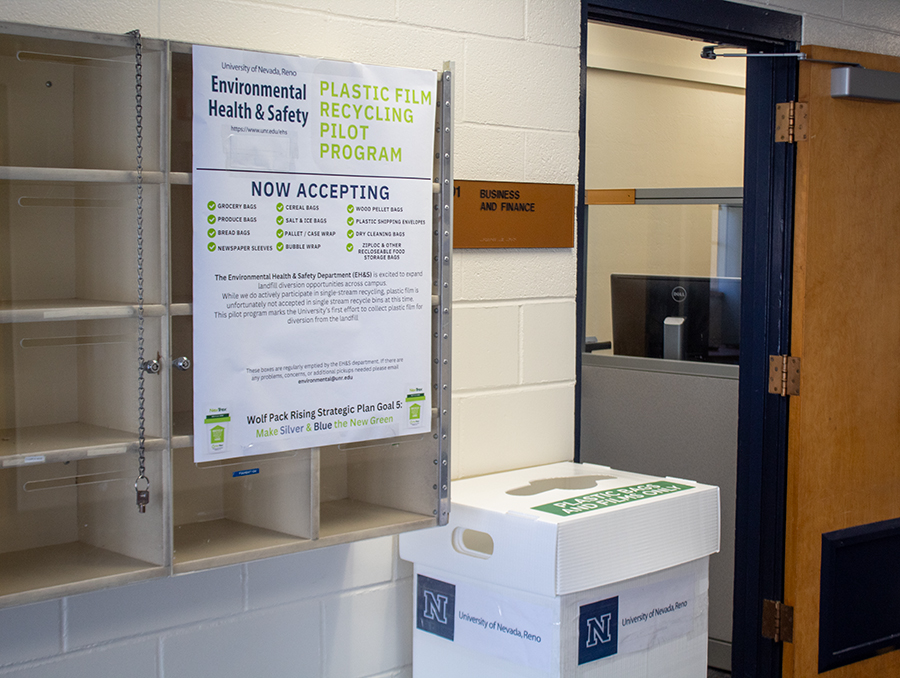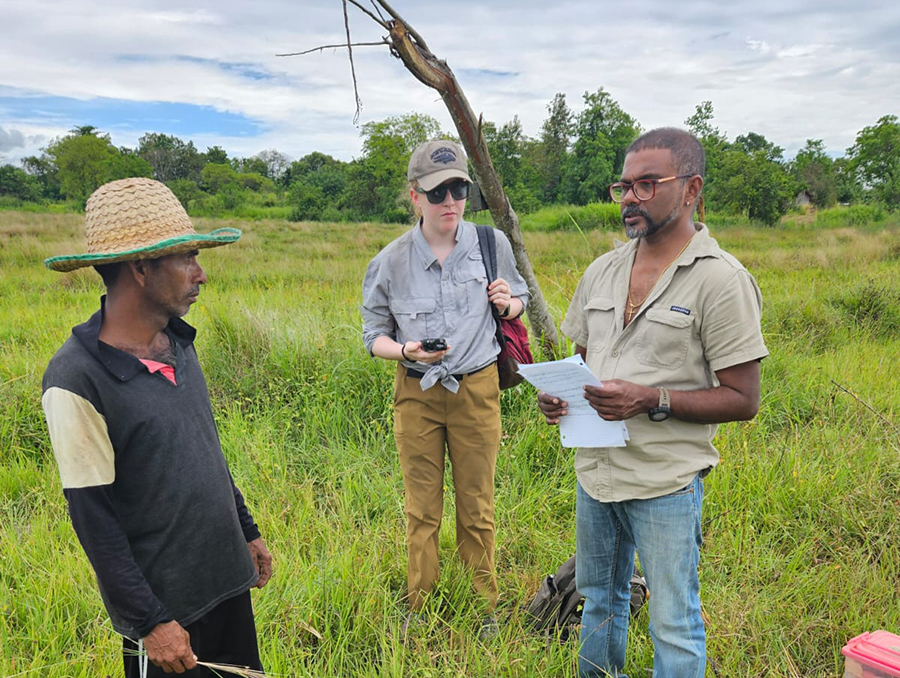
Find more answers here!
Professor of microbiology and immunology Paul Brett, Ph.D., and his lab team are advancing a subunit vaccine into human clinical trials and have contributed to the development of rapid diagnostic tools licensed by the Thai Food and Drug Administration (FDA). The Brett lab focuses on tropical infectious diseases, particularly melioidosis, which is caused by the bacterial pathogen Burkholderia pseudomallei. Brett emphasizes the importance of cross-disciplinary collaborations with experts from the United Kingdom, Thailand and the United States, which underscores the vital role of both basic and translational research in tackling global infectious diseases.
Can you introduce yourself briefly and tell me about your current role?
“I'm a professor in the Department of Microbiology and Immunology at the University of Nevada, Reno School of Medicine (UNR Med). My lab focuses on tropical infectious disease research, particularly melioidosis, which is caused by Burkholderia pseudomallei. This disease is significant in tropical regions, especially those bordering 20 degrees north and south of the equator, where it causes substantial morbidity and mortality. Our goal is to understand how this organism causes disease and develop countermeasures to prevent, treat, and diagnose it."
Can you describe your methodology?
"We have three main areas of interest: immune therapeutics, diagnostics and vaccines. For immune therapeutics, we are investigating the use of monoclonal antibodies combined with antibiotics to develop more effective methods of treating melioidosis, with the goal of improving patient outcomes, as infections caused by Burkholderia pseudomallei are challenging to treat. We are also working on rapid diagnostics because the disease manifests in many different ways, making it difficult for physicians, particularly in non-endemic areas, to diagnose. In collaboration with Narisara Chantratita, Ph.D., at Mahidol University in Bangkok, Thailand, and Mary Burtnick, Ph.D., at UNR Med, we’ve co-developed a rapid diagnostic test, now licensed by the Thai FDA, that can diagnose cases of melioidosis in as little as 15 minutes. Lastly, we’re developing a vaccine for melioidosis, a disease that kills ~90,000 people annually but currently has no vaccine.
"We’ve developed an effective vaccine that shows excellent protection in animal models and are working towards advancing it into human clinical trials in collaboration with VitriVax with the support of a $29 million contract from the Defense Threat Reduction Agency (DTRA).”
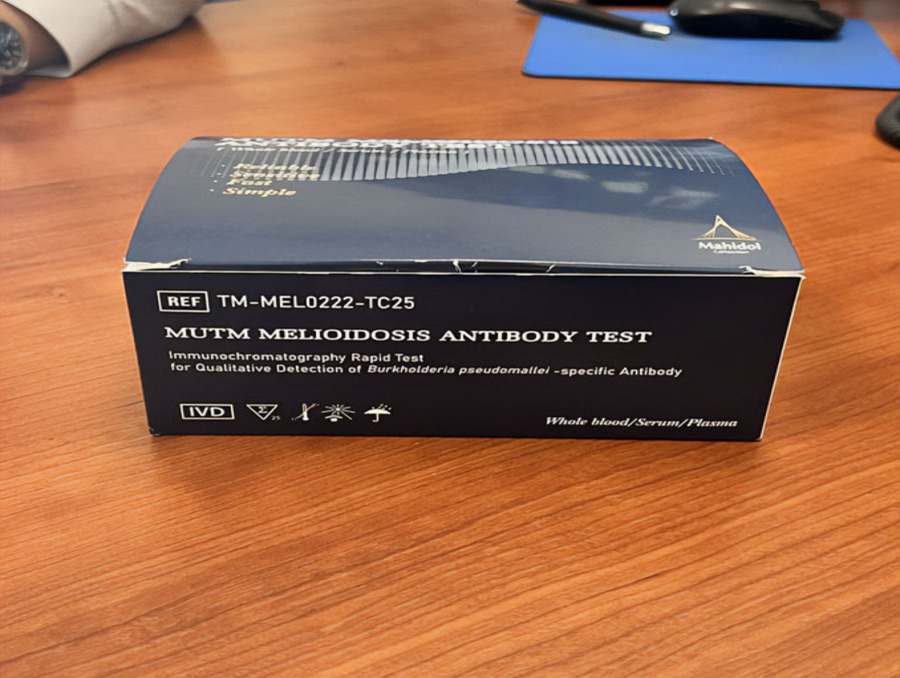
How does your research challenge traditional assumptions of practice in the field?
"I think vaccines are probably the area where I can answer that question best. Subunit vaccines were not thought to generate the type of immunity needed to prevent disease caused by Burkholderia pseudomallei, but we’ve shown that this is not the case. For instance, many people thought that a live attenuated vaccine would be the best approach, but we’ve developed a simple, antigenically defined vaccine that provides high-level protection and is considered safer than more complex alternatives currently being explored by other research groups.”
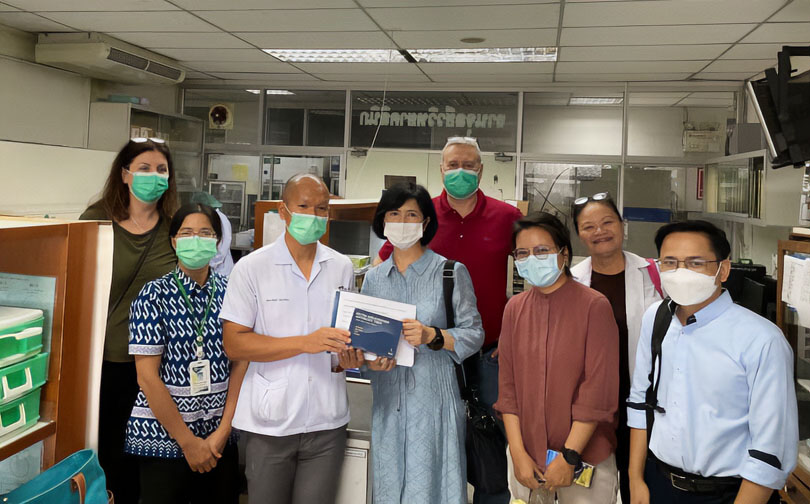
Moving forward with that, how do partnerships enhance your work?
"I'm lucky because I get to work with a lot of really smart people. I collaborate with researchers at the University of Oxford and the Defence Science and Technology Laboratory in the UK, as well as at Mahidol University in Bangkok, Thailand, where I serve as an adjunct professor. I also collaborate with many researchers here in the U.S., most notably at the United States Army Medical Research Institute of Infectious Diseases, Lawrence Livermore National Laboratory, Los Alamos National Laboratory, the University of New Mexico, and VitriVax. This makes my work both productive and a lot of fun.
“Developing subunit vaccines requires expertise in a variety of different disciplines, including microbiology, biochemistry, immunology, organic chemistry, and others. While we do world-class research here at UNR Med, it is because of collaborations with experts in fields other than my own that I have been able to take my research to the next level. So when students ask what it takes to become a successful scientist, I tell them that they need to work hard, become experts in their chosen field of study, and remember to be a team player because going it alone is difficult.”
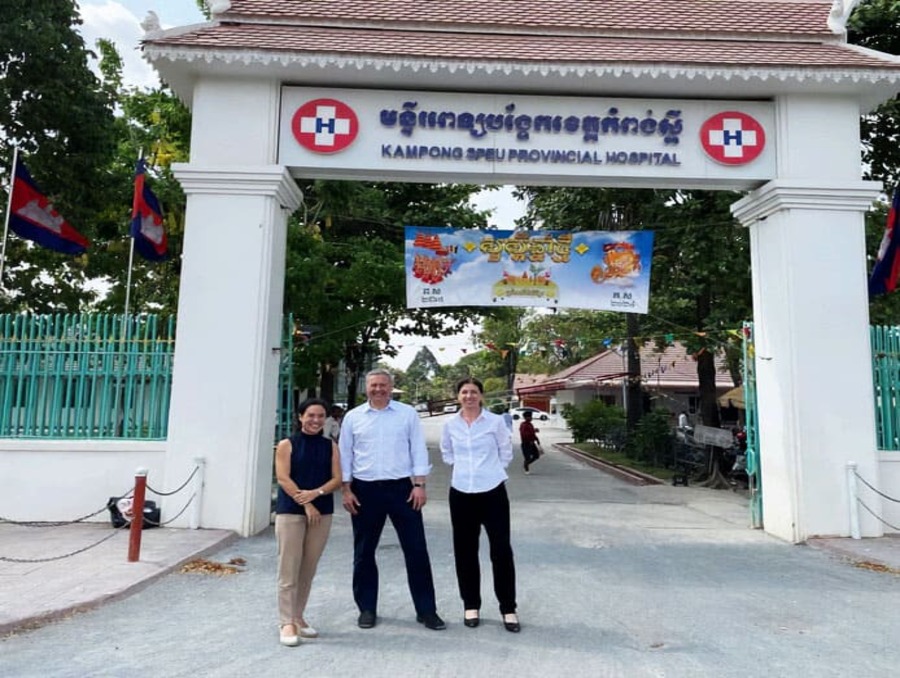
Final comments?
"I want to reiterate that all of this research is a collaborative effort — I can’t do it alone. The University of Nevada, Reno is an excellent place for our work because it offers outstanding resources, and our department is home to a dedicated group of internationally recognized researchers. Our collaborations extend around the world, and we are conducting impactful research that is truly making a difference for people globally."
About the professor
Paul Brett, Ph.D., is a renowned microbiologist with over 30 years of experience studying Burkholderia pseudomallei, the bacterium that causes melioidosis. A professor at the University of Nevada, Reno School of Medicine and adjunct professor at Mahidol University in Thailand, Dr. Brett focuses on how this pathogen evades the immune system to cause disease. His research focuses on the various sugar molecules that coat the bacterium’s surface—key features that it uses to hide from the body’s defenses. With deep expertise in bacterial genetics, microbial immunology, and vaccine development, his goal is simple but vital: to create safe, affordable vaccines that save lives.
